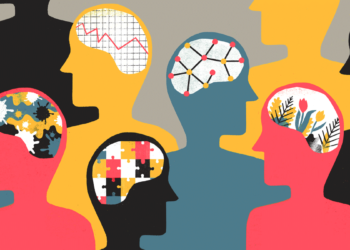In 2018 one event shook the electronic music scene- Avicii had committed suicide, shortly after his close friends reported how happy and inspired he seemed. He retired from playing shows and instead of getting better, it looks like he got worse. The event was quite a shock, but it lead to numerous other electronic musicians to take a break from music and focus on their mental health. Last year Eric Morillo (49) and i_o (30, one of my personal favourites) both committed suicide, along with countless others- the list is too long. What is behind these events? The trend is worrying and uncovers a dangerous truth hidden behind the DJ desks…
Mental health has always been a big issue in the music scene, especially after the rise of popularity in drugs. This is especially prevalent in the electronic/dance scene. The deadliest part of the whole story is the lack of sleep. DJs can sometimes play daily shows up to months at a time, leading to dangerous lack of sleep. They take drugs and drink alcohol in order to keep u with the crowd and also stop themselves from crashing. This is a vicious cycle that leads to many dying and those who survive experience total mental depletion. Burnout, depression and anxiety creep up onto touring DJs, especially on comedown from drugs, and this gets worse and worse with prolonged chemical abuse. On top of that, people in the industry do not seem to have proper support from experts, or refuse to listen until it’s too late.
A big problem in the music industry is that it is heavily populated with 2 high-risk groups- young, inexperienced people and people with previous mental health issues. Living such a high-paced life filled with dangerous temptations will quickly exaggerate mental disorders and on the other side overwhelm the young and developing mind, breeding many insecurities and mental struggles.
Having a public life is a very hard thing to deal with. The most notable example of this is Britney Spears’ breakdown. Though she is a pop star and not an electronic musician, this is quite relevant to this article, as Britney is a musician under heavy public scrutiny. She is a prime example how badly negative press can impact someone’s mental health. On top of that, she is still being controlled by her family and management to an extent. DJs are also heavily directed by their management and this often leads to them feeling powerless, even miserable.
i_o once mentioned in his Tweets how during the times of the pandemic, we can truly see how many people care for us. Those who do will check in on us daily and offer help in any form they can. Unfortunately, one of his last posts on instagram, with a caption “do u ever question ur life” wasn’t taken as a warning sign that he needs checking up on.
This documentary gives an insight behind the scenes and showcases interviews with iconic DJs, like Carl Cox, Pete Tong, Eric Morillo, Seth Troxler, Luciano and other, giving us an insight in how they feel being part of the business:
This second documentary is about the world’s “craziest” DJ, Fat Tony, who claims he had spent over a million pounds on drugs, during his 28 years of using. He clearly shows us how much problems drugs cause to DJs and multiply their mental health struggles:
This article is a reminder to frequently check on your loved ones and make action, don’t just leave them with a few empty words.

